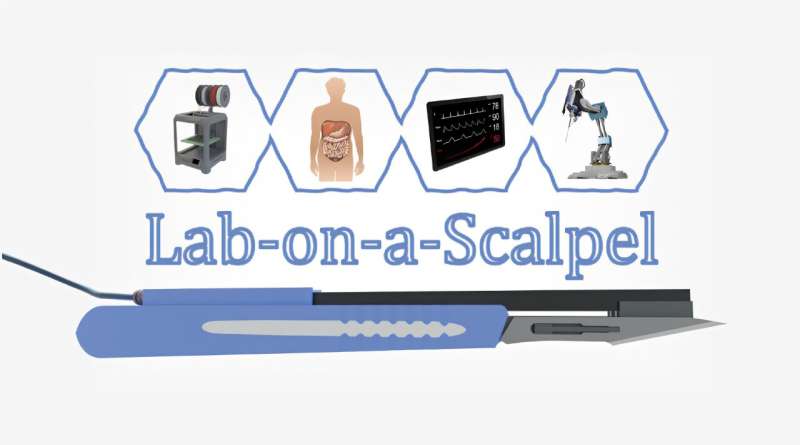The team, led by Professor Zdeněk Sofer, has developed and validated a “Lab-on-a-Scalpel” concept, a surgical tool with an integrated diagnostic sensor. They published their findings in the journal Analytical Chemistry.
This innovation addresses a critical challenge in surgery: the time lag between sample collection and lab results. During invasive procedures, a patient’s biochemical profile can change rapidly, but traditional testing methods are too slow to provide the real-time data needed for immediate, informed decisions.
The research team has created a disposable, compact electrochemical sensor that is fully 3D-printed and seamlessly incorporated into a standard medical scalpel handle. The genius of the design lies in its simplicity and accessibility. Using a common desktop-sized 3D printer, the team fabricated a multi-layered sensor from a special filament combining polylactic acid (a bioplastic) with conductive carbon nanomaterials, which allows the device to perform complex electrochemical analysis.

